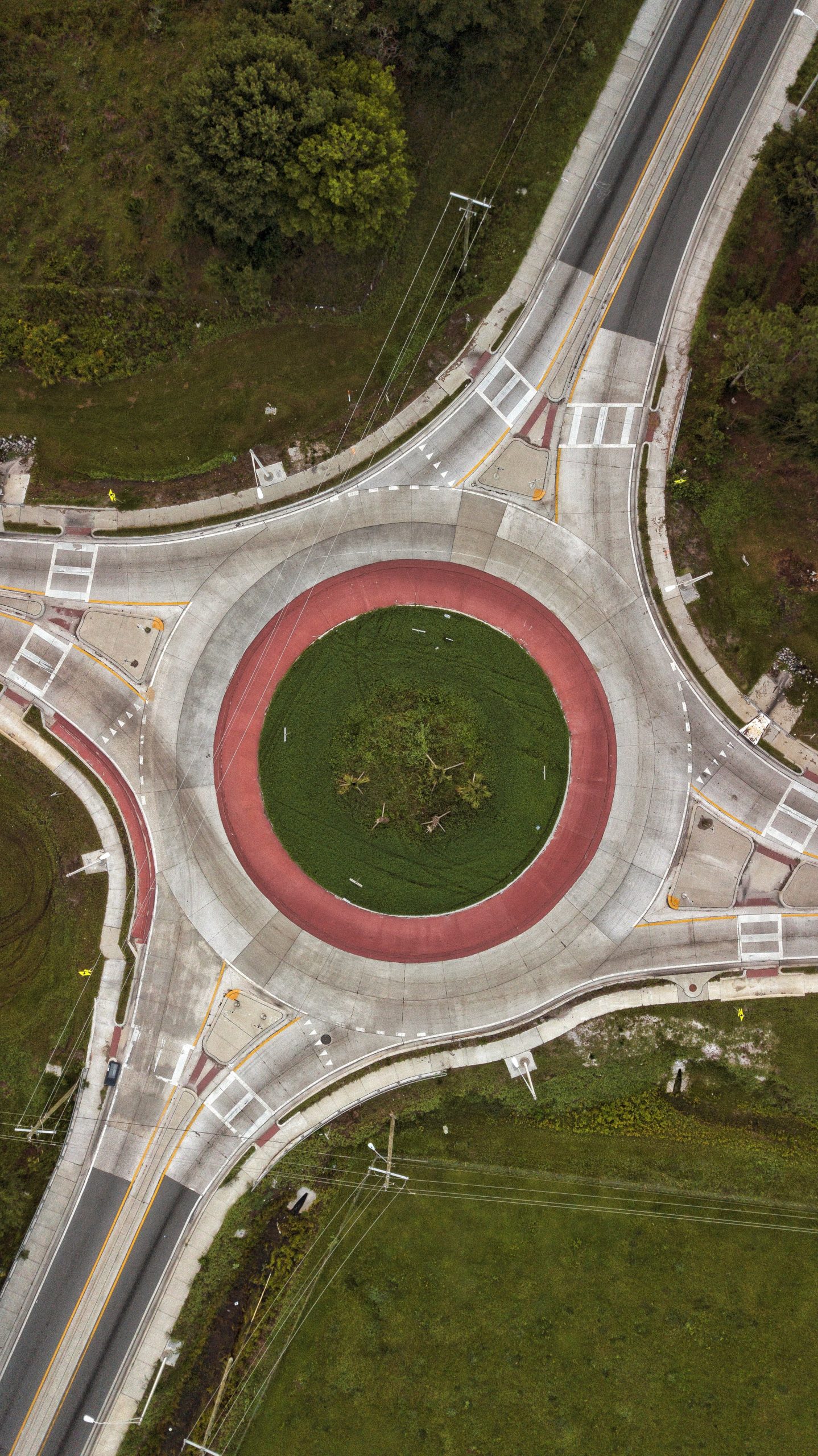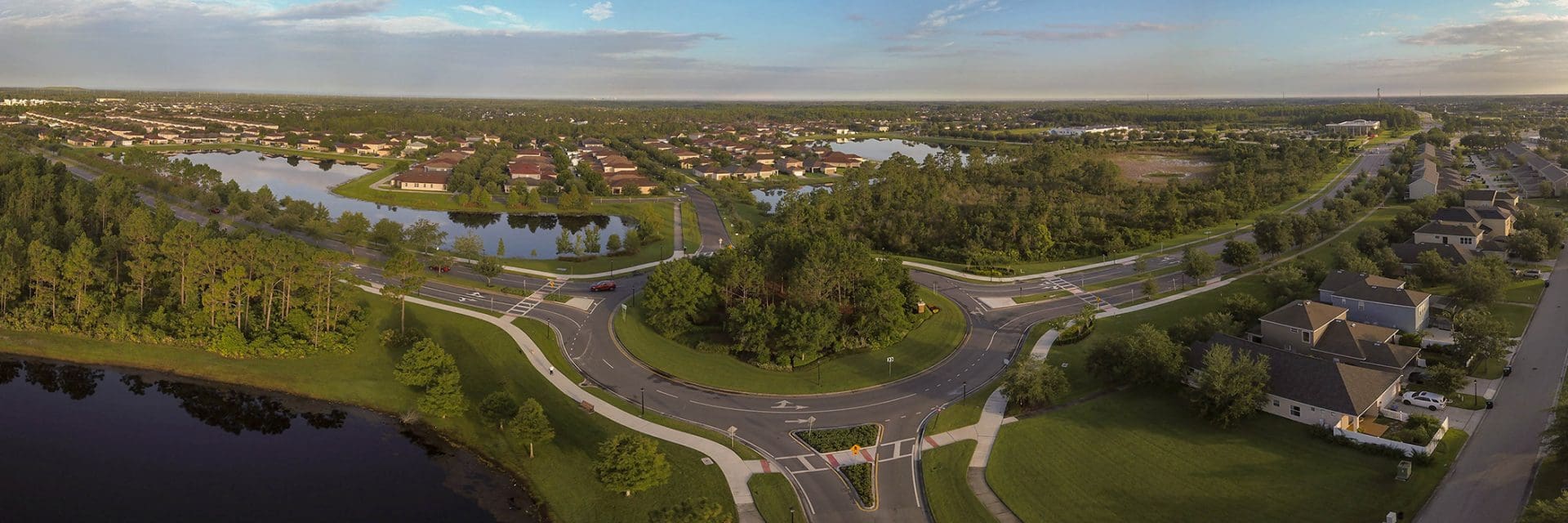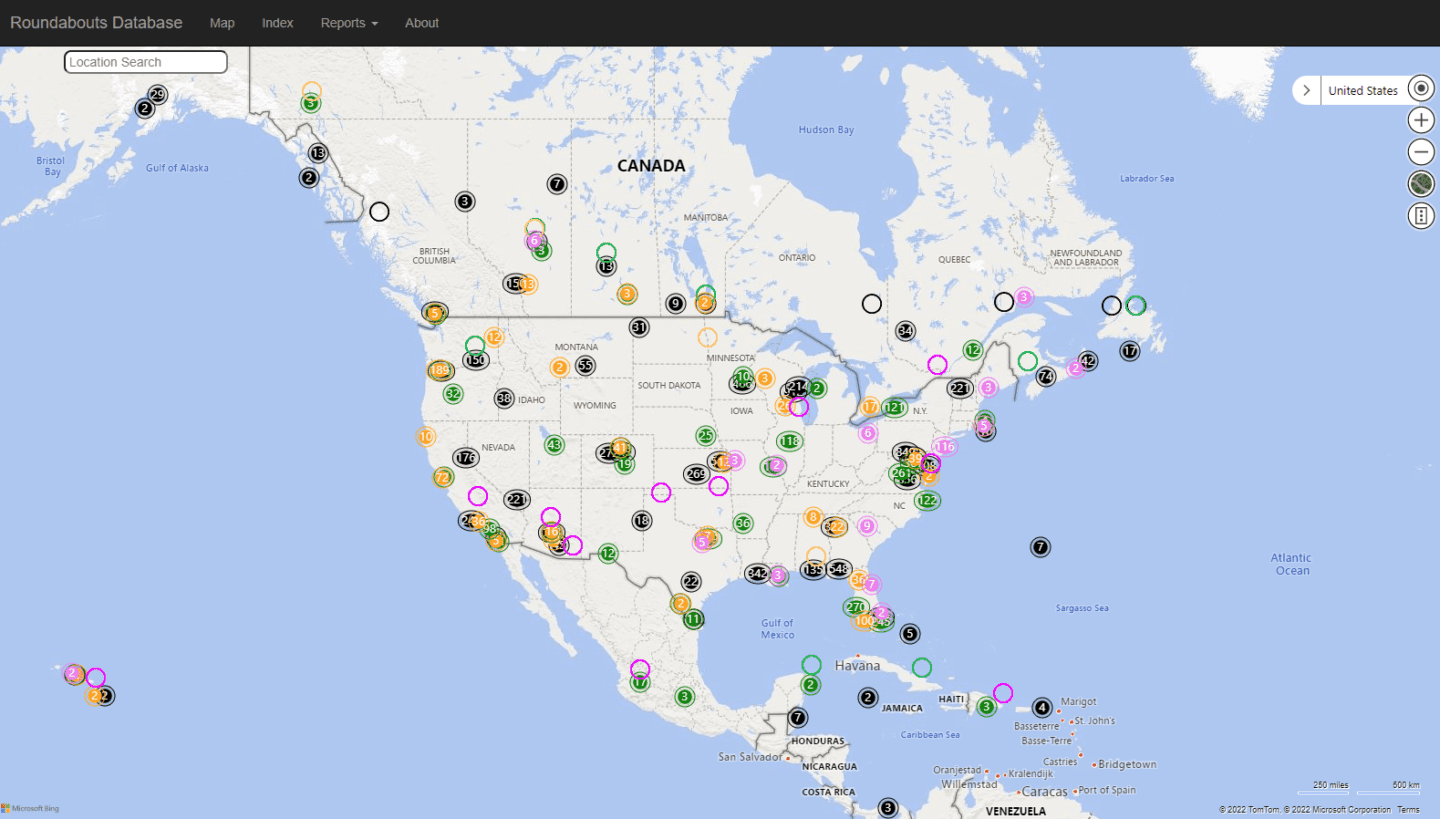June 15, 2020
Updated May 1, 2022
Have you ever wondered how many roundabouts are in the United States? It’s the kind of question many of us assume has always been answerable – carefully tracked by some data-crunching agency since New York’s Columbus Circle opened in 1905. The truth is more complicated.
“The only way we can definitively know is to place a marker where each and every roundabout is,” says Kittelson’s Lee Rodegerdts. And nobody started doing that until almost 100 years after the first carriage rolled through Columbus Circle.
Lee has curated the Roundabouts Database since 1997 when it launched – an outgrowth of the research project that created the first edition of Roundabouts: An Informational Guide, published by the Federal Highway Administration.
 The database is now a service to the Transportation Research Board’s Standing Committee on Roundabouts, which recently expanded in scope to include other intersection design and control strategies. Lee has been a member since its founding as a subcommittee back in 2003.
The database is now a service to the Transportation Research Board’s Standing Committee on Roundabouts, which recently expanded in scope to include other intersection design and control strategies. Lee has been a member since its founding as a subcommittee back in 2003.
“It started with an inventory of U.S. roundabouts that identified 150 sites,” Lee says. “One thing led to another, and now we’re at over 20,000 records in the database.”
After years of contributions from dedicated volunteers around the world, the database can tell users much more than how many roundabouts there are, thanks to specifications listed for many of the entries.
“It used to be that 75% of the roundabouts in the database were single-lane,” Lee says. “That number has gone down to 72%, which tells us the number of multilane and mini-roundabouts is rising.”
Thanks to the database’s growth and longevity, Lee estimates the number of roundabouts in the US through 2021 is about 8,800. A portion of this is an estimate of unknown roundabout sites in the US (sites that exist but haven’t been identified yet), now down to 7.5% from 13% in 2019, 29% in 2016 and 40% in 2013. Most of these unknowns were built relatively recently, so aerial photos and linework haven’t caught up.

The database has become the definitive inventory of roundabouts for the U.S., but it also has broad coverage of Canada and is now poised to become a worldwide resource.
Lee attributes the recent growth in contributions to a rise in the number of contributors combined with recent upgrades by Ian Cameron, a senior software engineer at Kittelson.
“In the past it was a free for all,” Lee says. “People could update live, unfiltered. At one point, somebody added a lot of junk. That was a setback.” After that, outside contributions were shut down for a while. The upgraded software places volunteer submissions in a queue that can easily be reviewed before posting.

All contributions are completely anonymous, but Lee has learned to recognize the signature style of some of his frequent contributors, including one who has probably located over three thousand roundabouts.
This database super user is Dan Tilque, a retiree who Lee eventually met via email. “He’s probably found another 50 roundabouts just in the last two weeks, and I can’t thank him enough.” Lee says.
One contributor sent Lee a spreadsheet of all the known roundabouts in Sweden – nearly 1,500 in all – which like all entries to the database had to be manually verified.
"The ultimate vision is to show all roundabouts worldwide," Lee says. "To get there, we cannot do it the way we're doing it now."
- Lee Rodegerdts
Lee and his colleague Ian are looking to machine learning to revolutionize the way the database is populated and maintained.
“Ian has written a script to estimate the diameter of all the roundabouts in the database,” Lee says. “Eventually, we believe it will be possible to use that same process to hunt down circular intersections on satellite maps and automatically populate the whole database, using what we have already curated to seed the learning process.”
Once worldwide roundabouts have been conquered and counted, Lee foresees using the same processes to inventory alternative intersections, traffic signals, and other transportation infrastructure.
Lee was part of the Kittelson-led team for the research effort that created the first edition of Roundabouts: An Informational Guide. He served as Principal Investigator for the second edition, released by the National Cooperative Highway Research Program (NCHRP) as NCHRP Report 672 in 2010.
As an aspiring engineer in college, Lee had no idea he would one day become an ‘international roundabout expert,‘ in the words of John Metcalfe at CityLab or ‘the keeper of our nation’s roundabout data,’ in the words of Justin Fox at Bloomberg.
“I did grad school on traffic signals,” he says. “I had no idea this would be the inflection point for my career or the basis for relationships I’ve had around the planet. More people know me or recognize my name than I know and that’s a very weird feeling. I’m grateful, utterly humbled.”
Despite the years of work he has put into the Roundabouts Database, Lee’s pride in it is not one of ownership.
"It's a public service," he says. "That has always been its intent."
- Lee Rodegerdts
Estimated Roundabouts in the United States Through 2021
United States: 8,800
Canada: 1,150
Methods and Assumptions:
- Data pulled 5/1/22
- Other circular intersections excluded
- Current database compared to what was known in 2021, 2020, 2016, 2013, and earlier to estimate undercounting
- Total estimated unknown sites in 2022: U.S.: 7.5% (5.6% in 2021, 13% in 2019, 29% in 2016, 40% in 2013), Canada: 9.4% (11.3% in 2021 and 20% in 2019)
- Unknown sites are distributed over multiple years, biased towards most recent years
Lee Rodegerdts is a principal engineer at Kittelson. He is recognized internationally for his expertise on roundabouts and other intersection types. He is a founding member of TRB’s Committee on Roundabouts and the National Committee on Uniform Traffic Control Devices’ Roundabout Task Force.
Ian Cameron is a senior software developer at Kittelson. He was a creator of BlueMAC Bluetooth data collection hardware and data analytics software.
–
Help keep the Roundabouts Database current! Visit roundabouts.kittelson.com to learn more.
